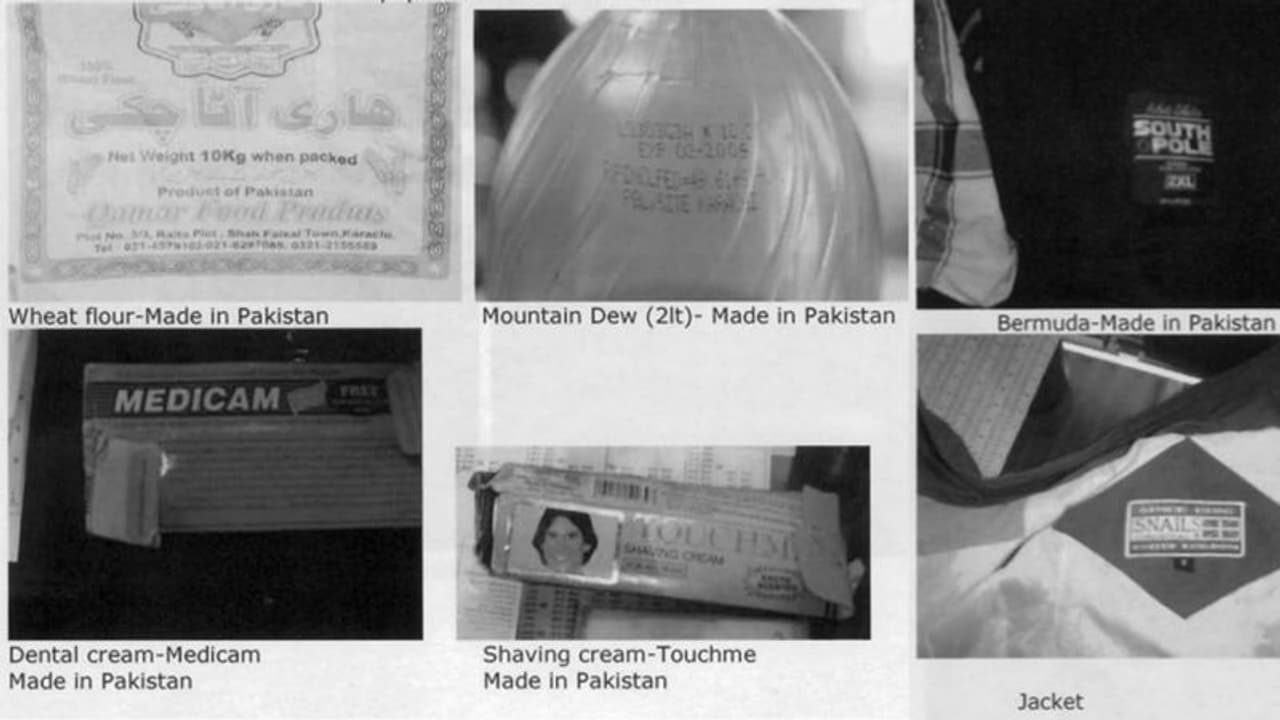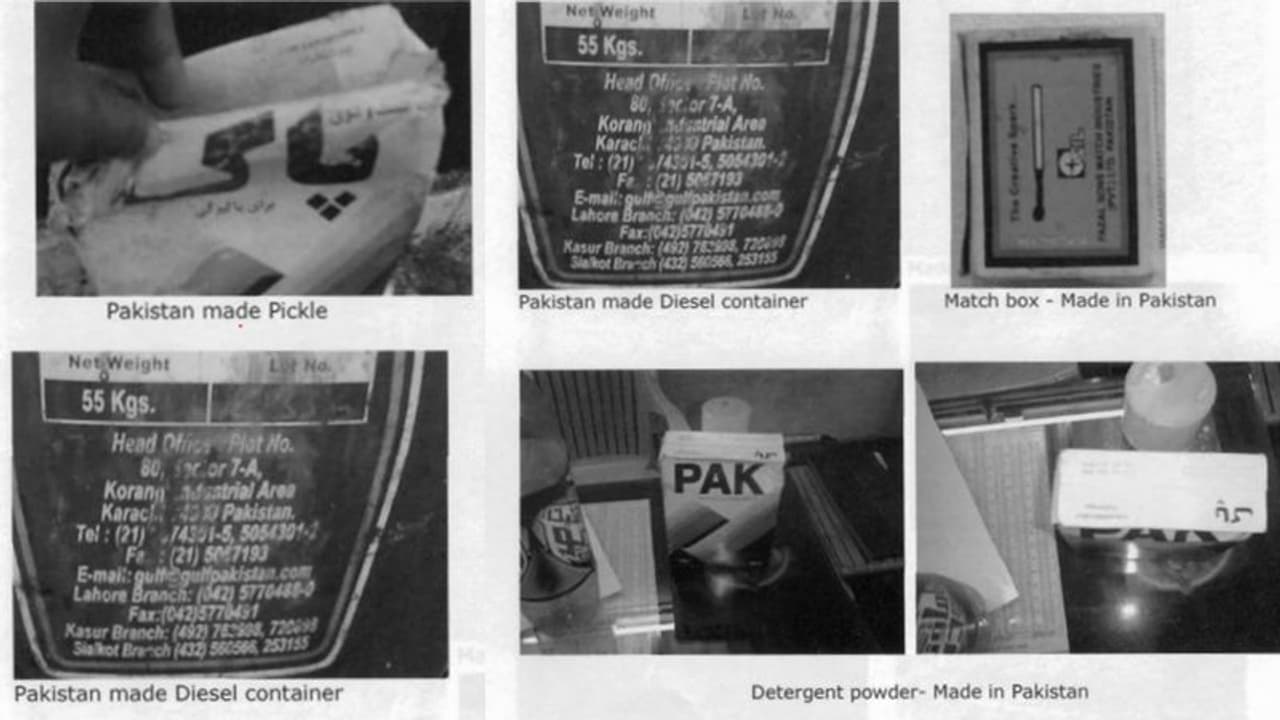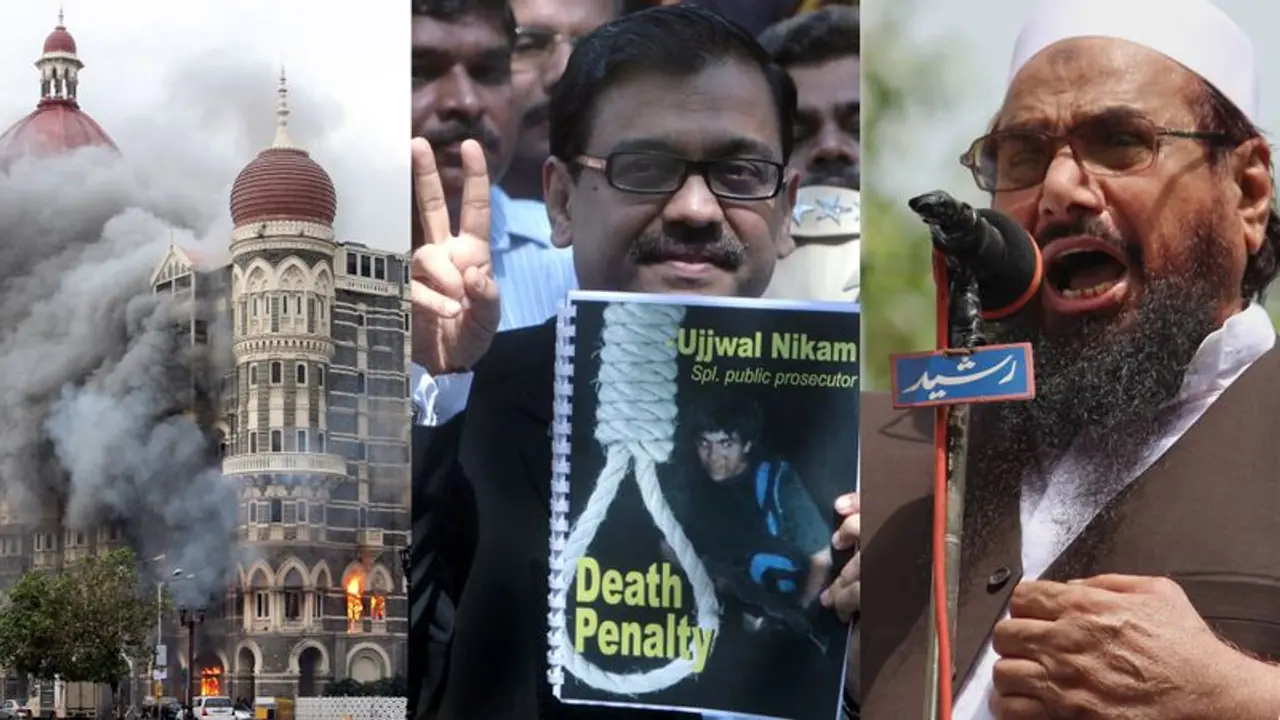Despite all the proof provided through countless dossiers by the Indian government, Pakistan has made zero progress to show sincerity in delivering justice to the families of 166 victims of the November 26, 2008, Mumbai terror attacks, from 15 countries across the globe.
As India solemnly marks 13 years of the dastardly attacks by 10-heavily armed Pakistani terrorists in Mumbai on November 26, 2008, full justice eludes the victims of the attacks even today. Despite multiple dossiers shared by the Indian government that prove the fidayeens were recruited and trained in Pakistan by the Lashkar-e-Taiba (LeT), under the aegis of the country's spy agency, Inter-Services Intelligence (ISI) and the Army - Islamabad continues to remain in denial and is yet to prosecute those accused of waging war on Indian soil.

The 60-hour-siege, which left 166 people dead and over 300 injured, began with the 10 Kalashnikov-wielding terrorists entering Mumbai via sea route from Pakistan's port city Karachi. They simultaneously struck at various locations - the Chhatrapati Shivaji Terminus, Leopold Cafe, the Oberoi-Trident Hotel, the illustrious Taj Mahal Palace Hotel, Cama Hospital and the Nariman House Jewish community centre. The terrorists were also equipped with real-time tactical guidance originating from Pakistan. On the night of 26/11, the Mumbai police arrested one of the terrorists - Ajmal Kasab, which proved to be a game-changer in the interrogation process that followed. Kasab confessed that he was a Pakistani national and, along with nine of his colleagues, belonged to the terror group, Lashkar-e-Taiba (LeT).
Also watch: Terror Decoded: Pakistan-bred menace Lashkar-e-Taiba
Three months later, the Mumbai police charged Ajmal Kasab with waging war against India and named 35 other Pakistanis, including two Pakistan Army officers, LeT chief Hafiz Saeed and commanders Zaki-ur-Rehman Lakhvi and Zarar Shah. The National Investigation Agency (NIA), which probed the conspiracy behind the attack, had filed a charge sheet against nine persons: David Headley, Hafiz Saeed, Tahawwur Rana, two serving Pakistani army officials Major Iqbal and Major Sameer Ali, Ilyas Kashmiri, Sajid Malik and Abdul Rehman Hashmi.
26/11 Special Public Prosecutor Ujjwal Nikam: Deep-rooted criminal conspiracy was hatched on Pakistan's soil
The dossiers shared with Islamabad contained critical evidence, including Ajmal Kasab's confession and his deposition in Mumbai court during the 26/11 trial. Noted lawyer and Special Public Prosecutor in the case Ujjwal Nikam has time and again said that India needs full justice by trying and booking the prime perpetrators present in Pakistan. In an earlier interview to Asianet Newsable, Nikam, whose efforts in court led to the execution of Ajmal Kasab in November 2012, had also pointed out that Pakistan's move to sentence LeT/Jamaat-ud-Dawa Chief Hafiz Saeed and Zakirur Rehman Lakhvi to 10 and 15 years in jail, respectively, on terror financing charges was a mere eye-wash and game to escape the Financial Action Task Force's (FATF) stern action.
In the interview on March 7, 2021, Ujjwal Nikam also said India had provided voluminous evidence about Kasab and the nine other terrorists. David Coleman Headley disclosed close links between the LeT and Pakistan's ISI. This besides 'documentary evidence of email exchanges between them (LeT-ISI)'. David Headley had provided evidence in a Chicago court, after which he was sentenced to 35 years in jail.
Click on the video below to watch this exclusive interview with Ujjwal Nikam:
"
India's 26/11 dossiers: Key evidence that prove 26/11 conspiracy was hatched in Pakistan
- Ajmal Kasab, son of Mohammad Amir Kasab - a resident of Faridkot District Okara in the Province of Punjab in Pakistan, confessed that he, along with the other nine terrorists, were trained at LeT camps located in Muridke, Manshera and Muzzafarabad. He also states that Ismail Khan was made the group leader for the Mumbai attacks, which was told to them in September 2008. He revealed that the 10-member group were kept in isolation in a house near Karachi and were closely monitored by Zakiur Rehman Lakhvi, Abu Hamza, Yousuf alias Muzammil and Kaahfa - all senior functionaries of LeT.
- Kasab also disclosed the names and identities of the other nine slain terrorists. Ismail Khan, Babar Imran, Naser, Shoaib, Nazir, Hafiz Arshad, Javed, Abdur Rehman and Fahadulla were all Pakistani citizens, and their DNA reports were attached in India's dossiers.
- In his confession, Kasab stated that the terrorists spent an entire day on a boat, 'Al-Husseini', which belongs to Zakiur Rehman Lakhvi, before shifting to an Indian registered fishing vessel called MV Kuber. He added that their handler in Pakistan ordered them to kill the captain of MV Kuber, Amar Singh Solanki.
- Aparat from Kasab's confession statement, reference has been made to the Kalashnikov rifles, ammunition, grenades, mobile phones, GPS sets, etc., recovered from the terrorists from the scene of the terror strikes. The 9 mm pistols recovered from different crimes scenes bore the marking of 'Diamond Nedi Frontier Arms Company, Peshawar'. The hand grenades used were manufactured by Arges, an Austrian company. Inquiries revealed that Arges Company had given a franchise to manufacture hand grenades to a Pakistan Ordinance Factory near Rawalpindi. Similar hand grenades were used during the March 12, 1993 serials blasts that rocked Mumbai and the December 13, 2001 attack on the Indian Parliament.
- The satellite phone recovered from MV Kuber was used to make calls to numbers that have linkages with the LeT. A recovered GPS set from the same vessel was pre-programmed to help the terrorists reach the shore near Badhwar Park, Mumbai. Several personal use items retrieved from the fishing trawler contain unmistakable signs of having been manufactured in Pakistan.


- Investigation into an email claiming responsibility for the attacks, sent from deccanmujahideen@gmail.com, indicated that LeT's communication coordinator, Zarrar Shah, organized the creation of a new email account in the evening of November 26, 2008, specifically to send this email. Zarrar Shah was using another email ID 'drmoazam@ymail.com', registered from Pakistan on June 24, 2008.
- The Pakistani handlers of the ten terrorists passed instruction over the telephone throughout the operations. They used VOIP calling platforms and a virtual number to contact a mobile phone with one of the terrorists. This conversation was intercepted, and thereafter all calls made through the number was recorded. FBI officers also confirmed the use of VOIP by handlers of the terrorists in Pakistan during the 26/11 trial in Mumbai court. It was based on these depositions that the FBI arrested David Headley and Tahawwur Rana.
India has repeatedly asked Pakistan to expedite the 26/11 Mumbai terror attacks trial on the perpetrators residing on their soil, examine the Indian witnesses via video conference or send a judicial commission to India to record their statements. Yet, even after 13 years, there has been no movement on the part of Islamabad.
A case in point is Sajid Mir, one of the masterminds of the Mumbai attacks, continues to be at large in Pakistan. The US country report on terrorism 2019 has also noted this. The US Department of Justice has also filed a case against Sajid Mir and Abdul Rehman Pasha. Yet, Pakistan has neither arrested nor prosecuted Pasha. Although present in Pakistan, his whereabouts are unknown.
Meanwhile, Tahawwur Rana, a Pakistani Canadian, is in detention at the Los Angeles Metropolitan Detention Centre, awaiting a ruling on extradition to India. If Rana is extradited to India, the NIA is hoping to get fresh evidence against Pakistan, which will help the Indian government put pressure on Islamabad to take action in the Mumbai terror attack case.
Also read: US backs India's request to extradite 26/11 accued Tahawwur Rana
Despite all the proof provided through countless dossiers and the government of India's repeated call on Pakistan to give up its dilatory tactics in discharging its international obligations in the Mumbai terror attacks trial, Islamabad remains in denial. What's worse is that Pakistan has made zero progress to show sincerity in delivering justice to the families of 166 victims from 15 countries across the globe.
